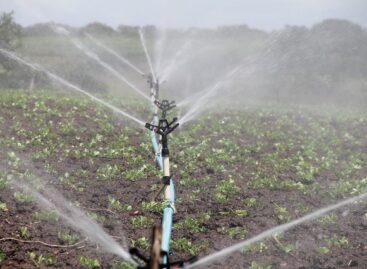János Áder: 80 percent of the effects of climate change will be felt through water
Excess water must be kept and must not be drained out of the country – said János Áder, former president of the republic and president of the Kék Bolygó Climate Protection Foundation, on Friday in Kaposvár, on World Water Day.

(Photo: Pixabay)
The former head of state pointed out that climate change will affect the Carpathian Basin sooner and more severely than many regions of Europe in his presentation to kindergarten teachers at the conference “Our Blue World”. 80 percent of the effects of climate change will be felt through water, he added. He said that drought, inland water and floods affect most of the country, and often appear at the same time: in 2013, there was a winter drought not far from the flooded Danube. During the 2022 drought, there was a part of the country where crops were not harvested at all, the drought caused more than HUF 1,000 billion in damage to agriculture, he explained. He pointed out that four thousand kilometers of embankments had to be built in Hungary to protect against floods. Instead of the previous approach to water management that prioritized the removal of excess water, the retention of water has now come to the fore. Nine emergency reservoirs are planned for the Tiszán – whose water level can rise up to six meters in one day during floods, six of which have already been built. The reservoirs can lower the Tisza’s water level by up to one meter, he said. Water replenishment of the sand ridge between the Danube and Tisza, which has a population of approximately one million, is expected to be completed by 2030, he said. He also mentioned that another way to conserve water is to return the areas that were previously wet but are now under cultivation to nature, which, however, can harm many interests. These lands should be expropriated and brought under common management by mutual agreement. At the same time, in the re-flooded areas, water would seep into the soil, reduce drought, and evaporation would create a microclimate, which would help farmers mitigate the effects of climate change. He also spoke about the simultaneous occurrence of “a lot of water, little water and the drama of polluted water” all over the world. The microplastics in the water of the oceans reach humans in the food chain, he noted.
MTI
Related news
Agricultural vocational training also places great emphasis on irrigation development
🎧 Hallgasd a cikket: Lejátszás Szünet Folytatás Leállítás Nyelv: Auto…
Read more >Related news
Lidl guarantees fairer prices for cocoa farmers
🎧 Hallgasd a cikket: Lejátszás Szünet Folytatás Leállítás Nyelv: Auto…
Read more >40 secure jobs, sustainable solutions – new BURGER KING® in Csepel
🎧 Hallgasd a cikket: Lejátszás Szünet Folytatás Leállítás Nyelv: Auto…
Read more >








